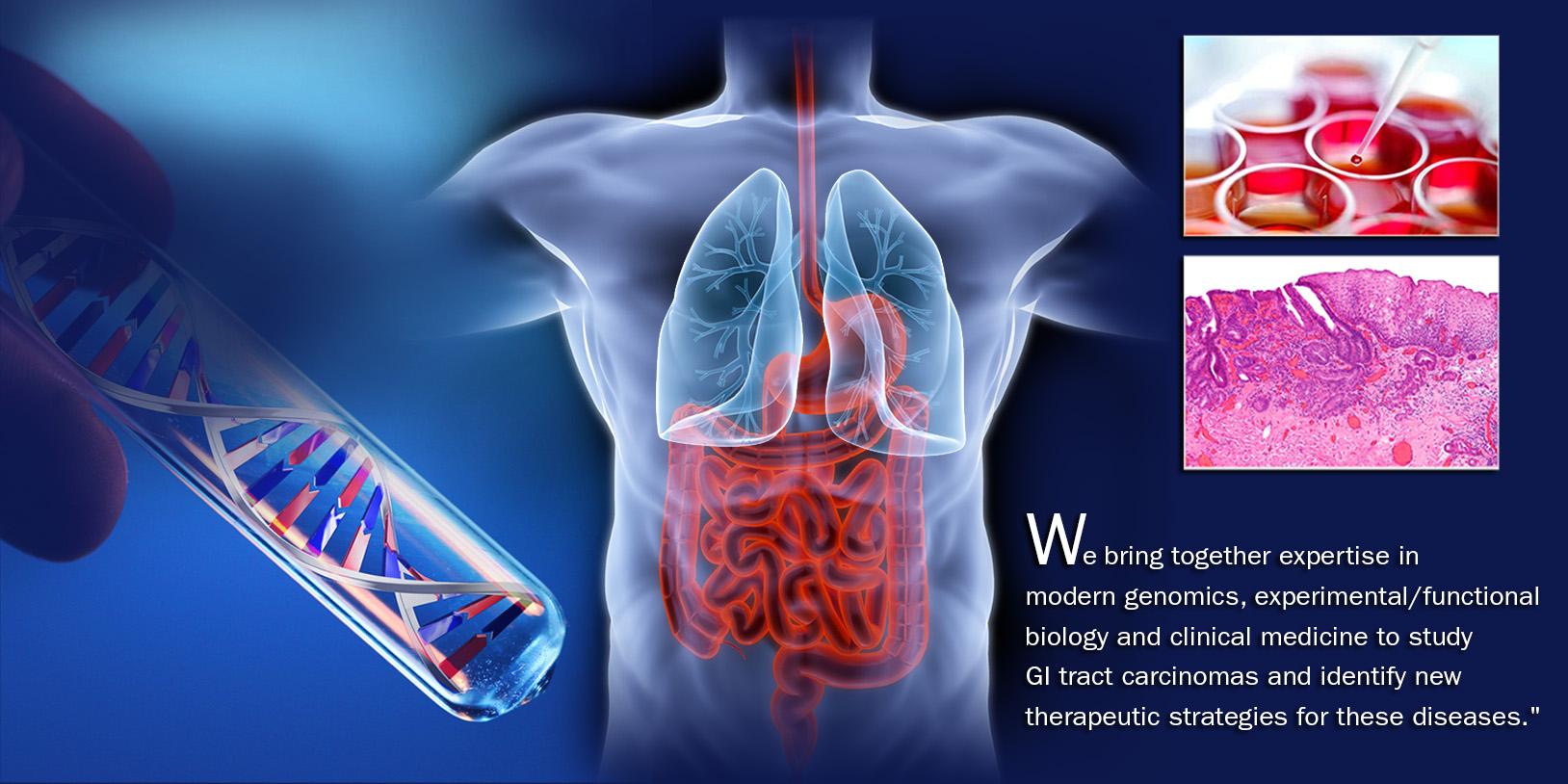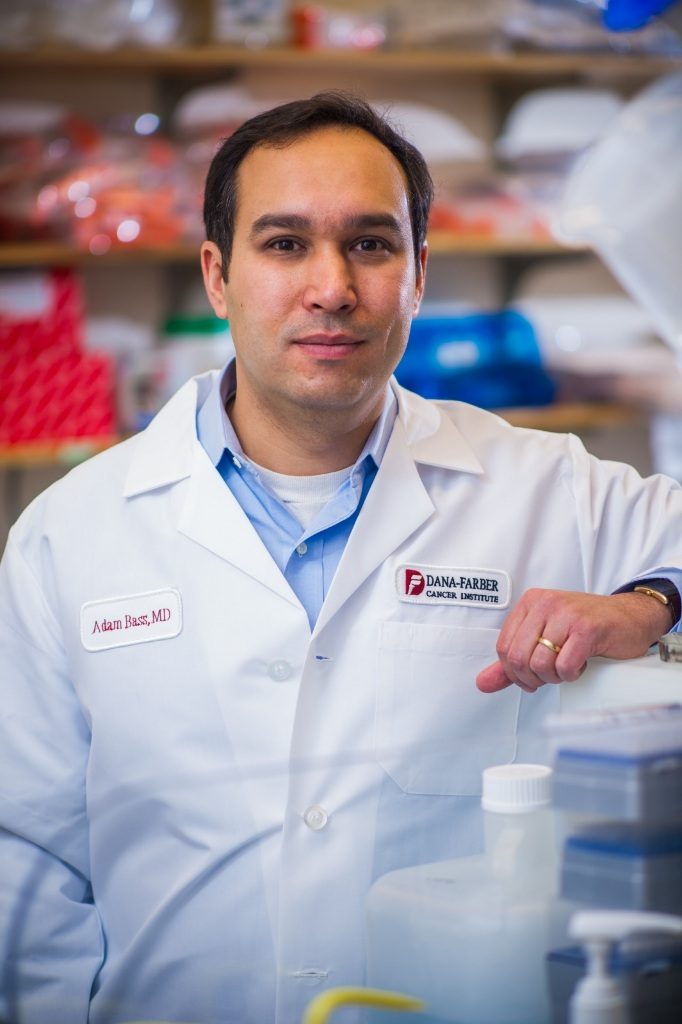Genomics, Biology and Translation in
Stomach and Esophageal Cancer


In our laboratory, we bring together expertise in modern genomics, experimental/functional biology and clinical medicine. Our overarching goal is to leverage the study the cancer genome to elucidate key biological processes and therapeutic vulnerabilities in carcinomas arising in the GI tract (especially stomach, esophageal carcinomas). Working closely with the Broad Institute and The Cancer Genome Atlas projects, we are at the forefront of several major initiatives to interrogate the genomes of these cancers where we are working to define the spectrum of alterations and the most likely critical genes in these tumors. We then bring key genes into our functional laboratory to study their contribution to cancer in more depth. In parallel, we are developing systematic approaches to allow us to efficiently evaluate the complex myriad of alterations that exist in these tumors to help us define those which are critically important and should be prioritized for focused follow-up. Last, we are beginning to test in pre-clinical models therapeutic approaches for cancers driven by specific genetic alterations.
We will soon be in an era where genomic profiling of each patient’s tumor will be an integral factor in guiding cancer care. In sum, our laboratory is committed helping to develop a foundation that will enable clinicians and researchers to be able to interpret genome data in real clinical time to positively impact the care of our patients by identifying the genes and pathways likely to be driving each patient’s tumor so we can select targeted and effective therapies for each patient.
 |
 |
 |
 |
